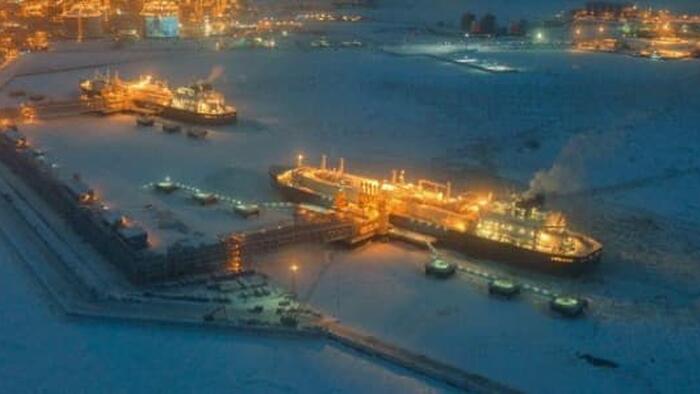Russia is reportedly taking measures to circumvent Western sanctions that have targeted its liquefied natural gas (LNG) tanker fleet. According to a report from Bloomberg, Moscow has restructured ownership of three LNG vessels—previously managed by Russian companies Gazprom and Sovcomflot—by transferring them to a newly-formed company based in a free trade zone in Dubai, named Matias Ship Management. This maneuver has raised eyebrows, as it seems to signal an intention to create a shadow fleet that can operate outside of Western oversight. The three vessels, named Velikiy Novgorod, Pskov, and La Perouse, have been primarily associated with the Portovaya LNG export plant on the Baltic Sea, a facility that is not currently subject to Western sanctions.
The new ownership arrangement has significant implications. The vessels involved, especially the Velikiy Novgorod and La Perouse, have recently been placed under UK sanctions, marking a substantial crackdown on entities attempting to support Russia’s maritime operations. The UK’s latest sanctions package, its most extensive yet, has added 18 oil tankers and four LNG tankers to the list of assets designated for sanctions. This aggressive targeting of shipping vessels is a part of a broader strategy to cripple Russia’s ability to generate revenue from its energy exports, which remain vital for the Kremlin’s economy, particularly in light of the ongoing conflict in Ukraine.
At the heart of this situation lies the strategic use of free trade zones, such as the one in Dubai, which have become hubs for companies seeking to facilitate Russian energy exports in a manner that avoids detection and regulation by Western authorities. The Meydan Hotel in Dubai, where Matias Ship Management is registered, is emblematic of this trend. Many other companies suspected of assisting Russia’s efforts to maintain a shadow fleet are based in similar jurisdictions, suggesting that these locations are increasingly being used as operational bases for evading international sanctions.
The operations of these LNG tankers are particularly noteworthy given their recent activities at the Portovaya LNG plant, which has not faced sanctions or export restrictions. The ability of these vessels to serve an unsanctioned facility allows Russia to continue exporting LNG, albeit under conditions that attempt to obscure their origins. This strategic pivot to utilizing alternative business structures and jurisdictions highlights Moscow’s adaptability in response to external economic pressures. By amassing a “dark fleet,” Russia is attempting to ensure the continual flow of its LNG exports while navigating a complex web of international sanctions that aim to choke its energy revenues.
Recent actions from the U.S. government further illustrate this ongoing tug-of-war between Western powers and Russia over energy trade routes. The U.S. State Department has ramped up its efforts to impede exports from the Arctic LNG 2 project, which has been a focal point of Russian innovation in energy production. By targeting entities involved in this project’s development, the U.S. seeks to limit Russia’s ability to export LNG effectively and minimize the attractiveness of alternative routes or ownership structures.
In conclusion, the Kremlin’s maneuvers to establish a shadow fleet of LNG tankers not only reveal the lengths to which it is willing to go to maintain economic outputs but also underscore the evolving tactics in the global energy market. As Russia adapts its strategies in response to sanctions and enhances its operational capabilities in regions like Dubai, the international community must remain vigilant. The situation reflects a broader geopolitical contest that balances energy security, economic warfare, and the quest for geopolitical influence, making the dynamics of Russian LNG exports a significant focus for policymakers moving forward.

